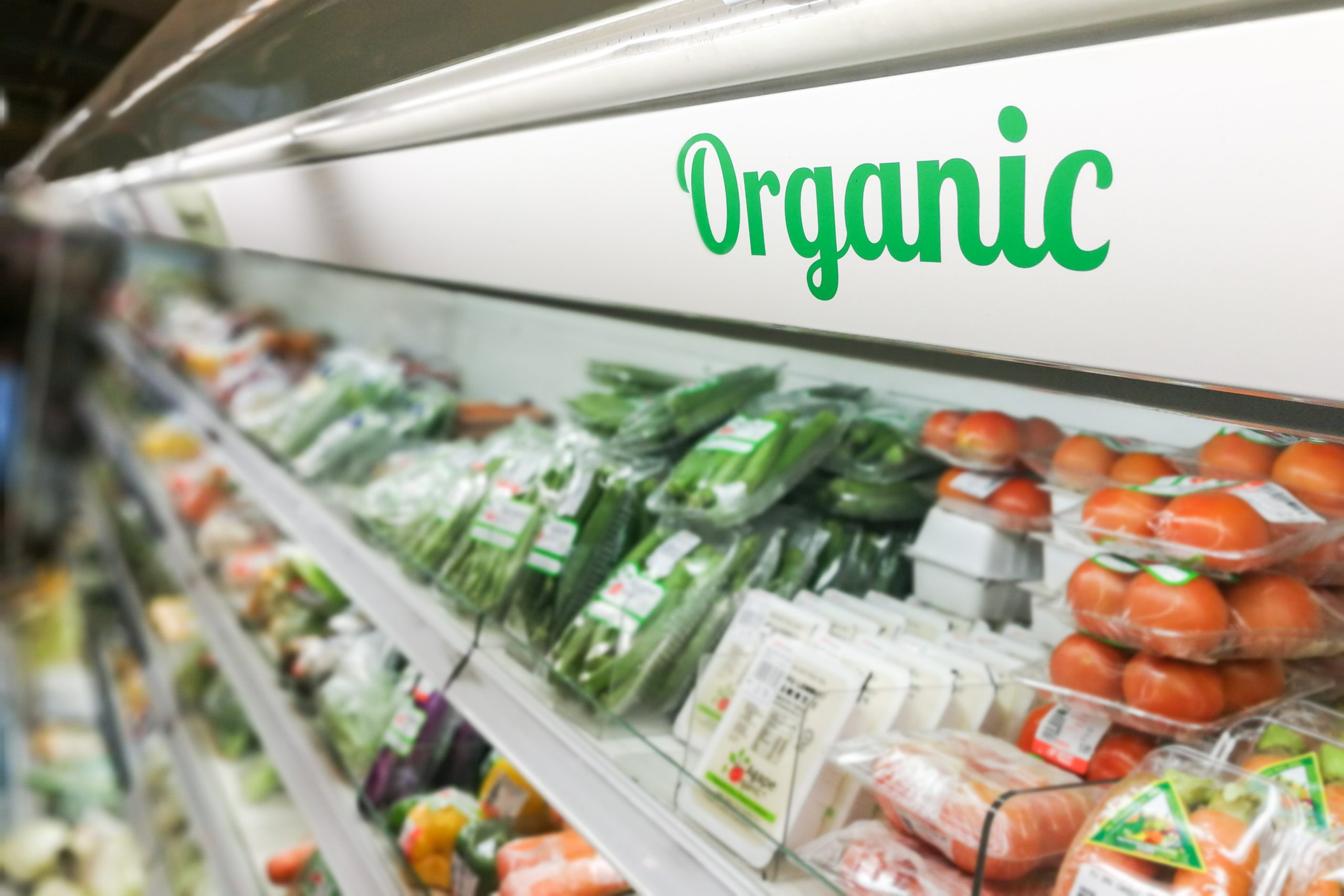White Leaf Provisions, a maker of biodynamic and regeneratively farmed baby food products, had just launched their products in many natural food stores in late 2019 and early 2020. And then COVID-19 hit.

Keith and Meghan Rowe, owners of White Leaf Provisions and their son, Keegan
White Leaf Provisions is a small company, literally a “mom and pop” business operated by owners Keith and Meghan Rowe and five employees.
But they’ve adapted. “It’s been disruptive, but we’re small and can make adjustments,” says Keith.
Their retail sales plunged but their online sales compensated for the losses. Before COVID, 60% of White Leaf Provisions’ sales came from retail and 40% were online, and then online sales flipped to 70% during the pandemic. Online sales continue to be strong, increasing by an astounding 650% through July.
White Leaf Provision products are sold on ecommerce organic/natural food websites such as Thrive Market and Good Egg.
“A lot of our customers are loyal for our brand,” Keith says. “They switched to online purchasing.”
The Rowes also “went out of pocket” to keep their workers employed during the pandemic, and received the Payroll Protection Program loan from the U.S. government stimulus program to pay employees.
“We took personal cutbacks to keep the team together,” Keith says.
Today, retail sales are growing again while online sales continue to remain strong.
“Store sales are starting to pick up again and building a lot of momentum. 2020 could be a good year for White Leaf Provisions,” Keith says.
“Tidal wave of orders”
White Leaf Provisions’ story is not uncommon in the organic food industry. Other, larger organic food brands had to adapt to the new COVID-19 reality and saw their sales, particularly online, increase significantly.

Michael Potter, CEO of Eden Foods
“We got hit with a tidal wave of orders,” says Michael Potter, CEO of Eden Foods, which sells 400 organic food products from beans, grains, and flours to soymilk, condiments, pasta, and other products.
Foods with a longer shelf life like grains and beans, which Eden sells, saw especially strong demand as many consumers “pantry loaded.”
Potter says product sales to natural food distributors increased by 300% and website sales increased by 1000% during the pandemic. “It was scramble city,” he says.
The tidal wave of orders has gone down some but not to pre-COVID levels by any means, according Potter. Online sales are now 256% above pre-COVID while sales to distributors are now about 135% more than before the pandemic.
Potter says people are prioritizing healthier food to build immunity, and they see organic as a healthier option.
“Whenever things get nasty, people reevaluate what’s important, and food is at the top of the list.”
Potter says keeping employees safe during the pandemic has been a priority. Eden Foods provided face masks, improved work stations to ensure social distancing, and purchased thermometers to check employees’ temperature, among other measures.
“We’ve done what a prudent business would do,” he says. “You can’t be cavalier when it comes to the well-being of your staff.”
Sales to commercial venues “dead in the water”
At Reist Popcorn, one of the largest popcorn producers in the U.S., COVID-19 has affected its business “some in a good way, some in not such a good way,” according to Mike Higgins, president.
On the not so good side, Reist’s business selling organic popcorn to commercial venues such as theme parks, movie theaters, music festivals, and other large social gatherings is “dead in the water,” as those venues have been shut down during the pandemic, according to Higgins.
Meanwhile, online wholesale and retail consumer sales have increased though sales to consumers are a tiny fraction of Reist’s business; wholesale sales account for 99% of the company’s business.
But there are some encouraging signs. Some movie theaters including the large AMC chain are reopening, and Reist is getting international orders.

Mike Higgins, president, Reist Popcorn
“Some countries that buy from Argentina and Brazil, who have lockdowns, are calling the U.S. to fill orders. We’re shipping abroad to some countries that we don’t usually sell to,” Higgins says.
Higgins says the pandemic has also caused a “disconnect with people.”
“Face to face business with customers and vendors have been negatively impacted because there are no tradeshows. Information doesn’t move as quickly.”
Despite the pandemic, Higgins sees the demand for his company’s organic popcorn, which accounts for 25% of Reist’s business, continuing.
“We’ve seen growth every year, and I think it will continue,” he says.
Increased production to handle demand
Nature’s Path general manager Arjan Stephens says he was shocked to see empty grocery shelves “and people struggling to find healthy, nutritious food during this crisis.”

Arjan Stephens, general manager, Nature’s Path
Nature’s Path, which sells organic cereals, granolas, and snacks, responded by increasing production from five to seven days a week at their production facilities and hiring an additional 60 people to handle the increased demand.
“We also innovated within our product portfolio to offer more value-oriented products for families hard hit by COVID-19 to ensure that they would still have access to healthy organic food,” Stephens says.
Sales increased especially at the beginning of the pandemic during the pantry-loading phase but the higher sales have continued over the past few months. Online sales have also increased significantly, according to Stephens.
On the downside, there have been supply chain challenges particularly from international raw material suppliers.
“As a result of the pandemic, we had to rapidly identify and qualify new suppliers when our supply chain has been disrupted,” Stephens says.
Nature’s Path also implemented a range of worker safety measures, and has moved 150 employees from its head office to work from home.
Nature’s Path increased its charitable giving during the pandemic, donating $2.5 million worth of food to food banks and organizations supporting children who previously relied on the school system for food.
“Unprecedented levels of consumer demand”

Xavier Unkovic, CEO of Amy’s Kitchen
Xavier Unkovic, president and CEO of Amy’s Kitchen, says the pandemic has affected his company’s business in ways he never thought imaginable.
“We’ve experienced unprecedented levels of consumer demand and have had to balance that with our number one priority of protecting the health and safety of our employees,” he says.
Unkovic says Amy’s, which sells a wide range of frozen and canned organic meals, has seen unprecedented growth across all their product categories. This includes triple-digit growth for the company’s soups and double-digit growth for their frozen products. Amy’s is also seeing triple digit growth in its online sales since the beginning of the pandemic.
“We attribute these increases to evolving consumer preferences for organic, high-quality ingredients and two key trends that consumers continue to gravitate towards: healthier food choices and comfort foods like pizzas, macaroni & cheese, and burritos,” Unkovic says.
In addition to implementing COVID-19 safety measures such as masks and social distancing, Amy’s instituted a work from home policy that makes it voluntary for employees to come to the office through the end of the year.
People are also drinking more organic wine during the pandemic. Jonathan Frey, co-owner of Frey Vineyards, says his company’s sales have increased by 15%.
“With restaurant business slowing down, more people are drinking wine at home,” he says.
As with other organic companies, Frey’s online business has increased significantly. “They’ve gone up about a factor of 55%,” he says.
Overall sales of Frey’s organic wines continue to increase by 15% month after month. “The slowest months are usually June and July, but not this year,” Frey says.
“It all points in one direction: organic”
Organic food company executives expect the organic food category to emerge stronger than ever from the pandemic.
“Organic will continue to grow in leaps and bounds and the pandemic will only accelerate this trend,” Stephens says.
“As consumers become more hyperaware of what they’re buying and consuming and how it affects their health and climate change, we expect demand for organic to continue to grow,” Unkovic says.
Keith Rowe believes something positive will result from the pandemic.
“There has to be a rebirth coming out of this. Hopefully that’s with people really taking a deep look at their personal health and the well-being of themselves and their families. It all points in one direction: a better method of farming, and that’s organic.”









